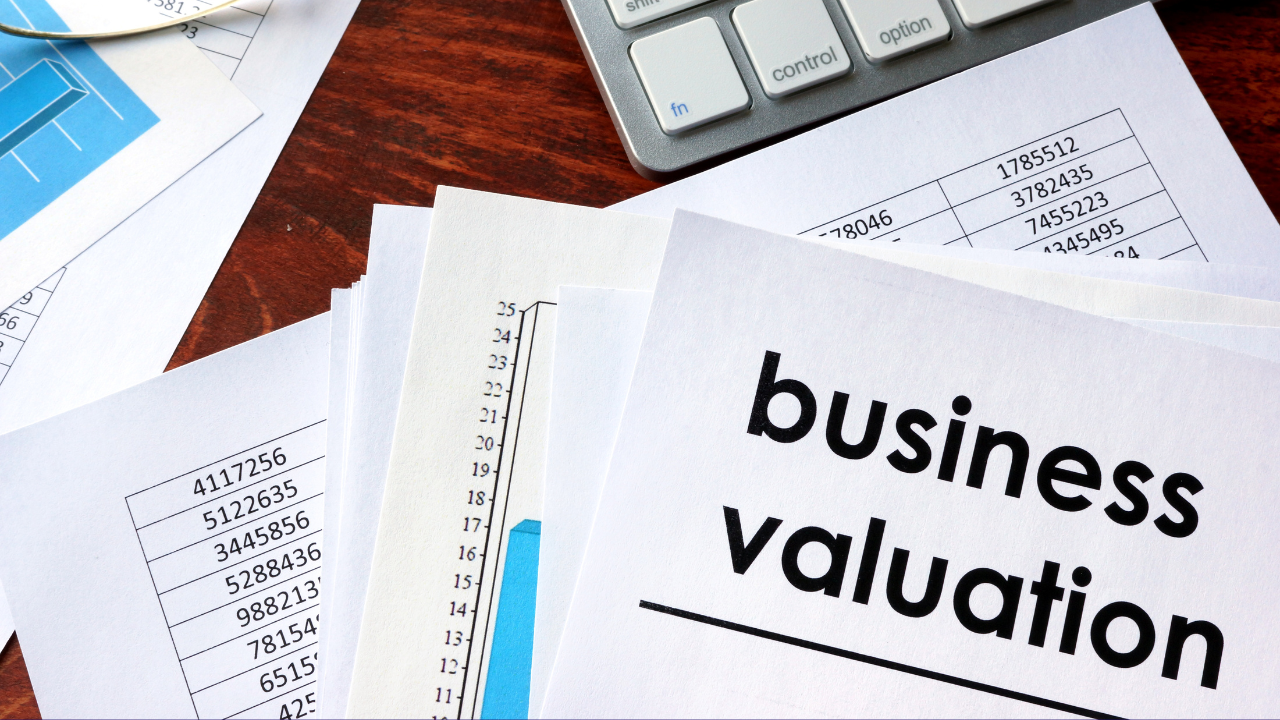Are you looking to buy or sell a business? If so, you may wonder what a business valuation service is and why it is essential.
A business valuation service evaluates a business’s market value based on factors such as assets and liabilities, income, and expenses. Let’s break down the different business valuations available and their benefits.
What Does a Business Valuation Service Do?
A business valuation service objectively assesses your company’s worth based on several factors, such as market trends, competition, historical sales data, industry benchmarks, and financial performance metrics.
This analysis helps determine the actual value of your company so that you can make informed decisions about maximizing its potential. Depending on your needs, the service might also provide additional insights into areas such as potential opportunities for growth or areas in which you are underperforming compared to competitors.
However, a business valuation does more than assess the current worth of a company. A business valuation provides an in-depth analysis of the overall financial health and operations, which can help identify any risk areas or potential growth opportunities.
This includes evaluating the assets, liabilities, income streams, cash flow patterns, historical financial performance, legal issues, competitive landscape, and other factors that could affect the value of a business.
A professional appraiser can provide businesses with a comprehensive assessment that looks at all relevant information so they can make informed decisions about your company’s future. Such an analysis can also be used as a benchmarking tool to compare your business against others in the industry to understand better where it stands financially compared to competitors.
The Benefits of Valuation Services
There are several key benefits to using a business valuation service.
Accurate Assessment
A business valuation accurately assesses a business’s value by considering various factors, such as financial performance, potential growth opportunities, and current market conditions.
The process typically involves analyzing financial statements, assessing the company’s tangible and intangible assets, researching industry benchmarks, evaluating risk factors, and considering changes in the overall economy. This holistic analysis helps to provide an unbiased view of what a business is worth in the current economic climate. The complexity and range of methods used for evaluating businesses help ensure that even those unfamiliar with accounting principles gain an accurate assessment of value. For instance, some valuation techniques, such as capitalized earnings or discounted cash flows, allow owners to determine what their business will be worth in the future based on projected earnings.
A comparative market analysis looks at similar businesses recently sold to understand what price level could be expected for a particular business. These methods utilized for business valuation help to provide a comprehensive understanding of what a particular business is currently worth and how it might change over time.
Access to Specialized Knowledge and Expertise
A business valuation provides access to specialized knowledge and expertise necessary for making informed decisions about the future of a business. This knowledge and expertise come from experienced professionals in the field who are well-versed in financial analysis, market trends, industry dynamics, legal issues, tax regulations, and accounting principles. All of these factors must be considered when evaluating a company’s worth.
Business valuers will be able to draw on their experience and provide an accurate valuation that gives an objective opinion on the company’s current market value. They will also be able to provide further insights into potential growth opportunities or improvement areas.
By accessing this knowledge and expertise, businesses can make more informed decisions about their future direction, maximizing profits while minimizing risk.
Provides Insight into Potential Areas for Improvement
A business valuation can provide insight into potential areas for improvement in business operations by identifying strengths and weaknesses within a company. The process allows a business owner to determine the fair market value of their business, as well as to uncover any discrepancies between the actual value and the expected one.
Business valuation offers critical data points that can be used to view an organization’s current performance, profitability, and financial health. This information can be used to identify inefficient practices, uncover areas with high financial risk, and understand why specific goals still need to be met.
By comparing a company’s expected performance with its actual performance, it is possible to gain insight into which operations should be improved or changed to maximize profits and optimize operational efficiency. Additionally, it gives business owners insight into what areas are undervalued or overvalued so they can better allocate resources accordingly.
As a result, businesses will have more accurate projections of their future success potential, which could lead to improved decision-making when developing new products or services.
Review and Analyze All Aspects of Your Company
A business valuation process is an essential step in understanding the value of a company, and it reviews all aspects of the firm that can influence its market worth. This includes an analysis of its financials, such as income, expenses, cash flow, profits, and liabilities. It also assesses the business’s operations by examining its production methods, quality control measures, and staffing. Additionally, it looks at customer base statistics such as how many customers there are, how long they have been with the company, and their satisfaction levels. It also looks at the competition within the industry to understand how well the business is performing compared to others.
Furthermore, it examines other factors, such as brand reputation or intellectual property rights, that could contribute value to a company. All these areas are reviewed to obtain an extensive understanding of a company’s worth so that investors can make informed decisions about whether or not to invest in the company.
The team will be able to identify any weaknesses or strengths in these areas that could potentially hurt or help your company’s value. This information can then be used to make changes and improvements to increase the worth of your company in the future.
Saves you Time and Money
A business valuation service saves you time and money in the long run by providing a comprehensive assessment of the current value of your business. This process provides a baseline for determining whether or not any changes you make, such as investments in new technology or personnel, will be beneficial in increasing the value of your business.It also gives you insight into areas where you need to adjust operations to improve your bottom line.
An accurate valuation can help minimize potential losses if hostile takeover bids or other corporate actions target the company. A professional business valuation service can help maximize return on investment and ensure critical decisions are based on reliable data rather than educated guesses.
The process gives you a better understanding of how certain aspects of your operations contribute to overall financial performance and guides you on optimizing performance moving forward. A business valuation reduces guesswork when preparing taxes and other critical financial reports since valuations help determine reasonable numbers upon which to base calculations.The team conducting the evaluation will have access to resources such as market research data and industry trends, allowing them to assess your business’s current market value quickly.
This saves you from conducting this research independently, which would be both time-consuming and costly. Additionally, they may also offer advice on how to improve certain aspects of your business operations so that you can maximize its value over time.
Keep Reading: The Top 5 Benefits of Having a CFO & Why They Matter
Types of Business Valuations
There are several types of business valuations, each based on a different evaluation process and assumptions.
Comparable Company Analysis
The most common type of business valuation is the Comparable Company Analysis (CCA). This type of analysis looks at similar businesses in the same industry and compares their performance to that of the subject company being evaluated. The CCA method considers the size, age, location, revenue growth rate, profitability margins, and other characteristics.
This type of analysis seeks to determine if the subject company has any unique characteristics that may affect its value relative to other companies in its industry.
Discounted Cash Flow Analysis
Another type of valuation used for businesses is the Discounted Cash Flow Analysis (DCF). This method looks at how much cash flow the company could generate in future years and discounts it back to today’s dollars to reflect present value. The DCF method considers potential changes in cash flows due to changing economic conditions or other risks associated with the business being evaluated. It also considers any taxes or capital gains associated with selling the business to calculate a fair market value for the subject company.
Asset-Based Valuation
When determining a dollar amount for a business sale price, the Asset-Based Valuation (ABV) approach looks at only tangible assets such as inventory, accounts receivable, real estate holdings, etc. The ABV method typically yields lower values than either CCA or DCF analyses because intangible assets such as brand recognition or customer loyalty are not considered when calculating asset values.
Market-Based Valuation
Market-Based Valuation uses market data to compare similar companies to assess the fair market value. It considers industry trends, buyers’ preferences, potential future earnings, customer base size, competitive landscape, and other factors that may influence the company’s value.
Earnings Multiple Valuation
The Earnings Multiple Valuation looks at the company’s past earnings and revenue growth rate to estimate its current worth, typically represented by a multiple of its earnings or revenue figure.
Intangible Asset Valuation
Intangible Asset Valuation considers intangible factors such as brand recognition, customer relationships, and patents to determine a business’s estimated worth. It also considers whether or not there are any synergies between businesses when calculating their combined worth if they were merged into one entity.
Business Valuations are Valuable Tools
Business valuations are essential tools for those looking to buy or sell businesses as they objectively assess a fair market value for any given entity. Each type of business valuation has its own advantages and disadvantages, but all three can help provide valuable insight into what your company is worth in today’s market. It is essential to consult with professionals familiar with this process before engaging in any transaction involving your business’s long-term financial health.



